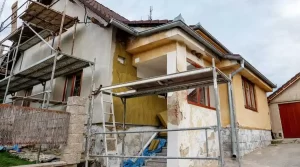What does “general contractor” mean?
A general contractor is a person who works for a manager or a client. He might be a tradesperson employed by an architectural technologist, an engineer suggested by an architect or another trustworthy individual. The general contractor’s job description includes taking on responsibilities for project management and coordination. He starts by analyzing the different paperwork, referred to as tender documents, bids, or proposals that reveal the project’s parameters. He must submit a bid, a proposal, and an estimate of the costs associated with using the procedure outlined in the documents. He has to give the project’s owner all the information they need to make an informed decision about the project’s overhead expenditures, which include running the office, buying supplies and equipment, paying for workers, and other miscellaneous expenses. Before any remodeling is done, he will need to visit the site to learn more about the project.
The Position Summary
The general contractor’s additional duties include delivering the services necessary for construction projects. He must supply not only labor and materials but also the engineering equipment and cars needed for the job. His responsibility is to secure subcontractors who are qualified to do the various tasks involved in building.
The general contractor is in charge of procuring temporary utilities, protecting the property, making sure that workers are diligently at work, and submitting applications for permits for the new building. Engineers and surveyors must be sent to the site, cash flow and timelines must be watched, and building debris must be disposed of or recycled must all be done by him. He has to make sure that the records are kept accurately.
All general drawings, supplemental materials, and project manuals that are specifically mentioned and/or offer additional terms are included as contract documents. All adjustments and additions are issued and proposed prior to the bidding, and these documents were created by an architect or a professional designer. He might be employed as a construction manager at risk or simply referred to as a construction manager.
Choosing The Appropriate General Contractor
Due to the numerous obstacles that must be overcome, not all general contractors can complete the project. These tasks are difficult for some people to complete successfully. In order to choose the best candidate for the position, careful consideration and a methodical approach are required. Verifiable references should be sought, and clients who have recommended the general contractor should be contacted. Examine the work the contractor has performed, and make sure to do so. You will be able to tell if the contractor met the deadline and managed to stay within the budget by doing this. Find out if there was a project manager in charge of overseeing the area. Has the general contractor complied with the County’s zoning regulations? Has he obtained all the licenses for zoning, plumbing, and electrical, among others?
Check to see if the project was completed properly and on schedule by visiting the sites that have been recommended. You can check to see if the general contractor adhered to the budget and the country’s town building code. Ask if the contractor obtained the building permits on their own. Check for professionalism, whether project managers are employed to remain on site, and familiarity with newly emerging technologies when you interview multiple contractors and get quotations. They ought to have knowledge of constructing 21st-century modern homes and be able to advise you on the use of products that produce green energy.
Assess the general contractor’s skills as best you can. Last but not least, ascertain whether his fees for managing the complete project are reasonable. The cost of high-quality yet reasonably priced materials should be included since else you risk going over budget. You should be able to choose the tiles, sinks, faucets, and other items you want for your home, or at the very least, describe the brand and model you want.
What the General Contractor Is Responsible For
The entire construction project must be responsibly managed by the general contractor. His duties include keeping lines of communication open with the client, vendors, and all subcontractors, including plumbers and roofers. Additionally, he must make sure that all workers are officially and legally protected by insurance. The appropriate choice of a site manager who can effectively communicate with tradespeople and clients helps to ensure that the project is completed satisfactorily within the allotted time and budget.
The best general contractor for the work will be chosen by the client to renovate a house or create a new office or corporate complex. Obtain advice from professionals who handle frequent construction projects, such as trusted counselors or architects. In order to successfully supply the scheduled job timings and funds in his estimate, the general contractor must be able to submit the proper bid and devise a strategy.
The site manager must be able to handle every duty, including delegation, interpersonal communication, time management, and hiring the appropriate staff. Although the general contractor may delegate labor to others, he must assume full responsibility for their output. He must to be able to assign tasks to the individuals best suited for carrying out particular tasks. He might charge them with planning the inspection dates, making sure the proper building licenses are obtained and making sure the Environmental Protection Agency is complied with. The general contractor needs to look into the expenses of the supplies and bargain for the best deals on the machinery needed for the job. Although he is not required to perform any hands-on labor, he should be properly knowledgeable about how to handle the various materials and tools needed to complete the task in accordance with the requirements and recommended procedures.
No special tests or educational requirements are necessary for general contractors. The appropriate license should be obtained by business owners as per state regulations. Every state and municipality demands that the employees carry the bare minimum of insurance and bonds to protect the client. The construction company’s manager may carry out his administrative responsibilities while working alongside the other employees if there are fewer than 50 workers. Larger businesses favor hiring a contractor to oversee and manage the supporting workforce.
If the general contractor has extensive expertise and great talents, he will be able to successfully complete the project and take full responsibility for all tasks performed on the construction site.






